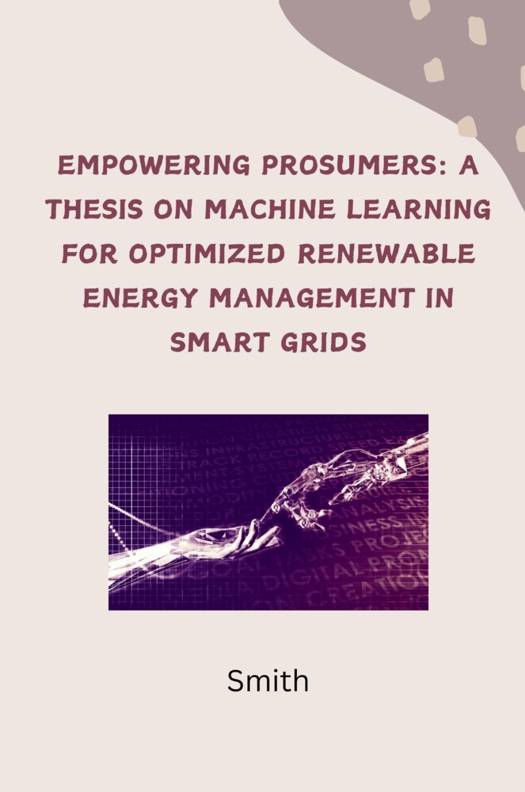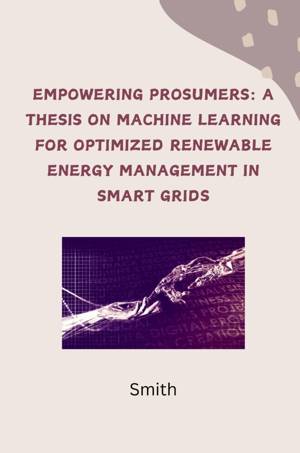
- Afhalen na 1 uur in een winkel met voorraad
- Gratis thuislevering in België vanaf € 30
- Ruim aanbod met 7 miljoen producten
- Afhalen na 1 uur in een winkel met voorraad
- Gratis thuislevering in België vanaf € 30
- Ruim aanbod met 7 miljoen producten
Zoeken
Empowering Prosumers: A Thesis on Machine Learning for Optimized Renewable Energy Management in Smart Grids
DE
Smith
Paperback | Engels
€ 25,95
+ 51 punten
Omschrijving
The increasing demand for energy coupled with the environmental concerns associated with fossil fuels necessitates a shift towards renewable energy sources. Solar, wind, geothermal, and hydro power offer clean and sustainable alternatives but come with inherent challenges. Unlike traditional, dispatchable power plants, renewable energy generation is intermittent and dependent on weather conditions. This variability poses significant challenges for grid operators in maintaining a stable and reliable power supply.Smart grids emerge as a solution by introducing two-way communication capabilities and distributed intelligence. They enable real-time monitoring and control of energy flows within the grid, facilitating the integration of renewable energy sources. Prosumers, a new category of grid participants who not only consume but also generate electricity through rooftop solar panels or micro-wind turbines, play a crucial role in smart grids. Their active participation can significantly impact overall grid efficiency and stability.
Alleen bij Standaard Boekhandel
+ 51 punten op je klantenkaart van Standaard Boekhandel
Beoordelingen
We publiceren alleen reviews die voldoen aan de voorwaarden voor reviews. Bekijk onze voorwaarden voor reviews.








